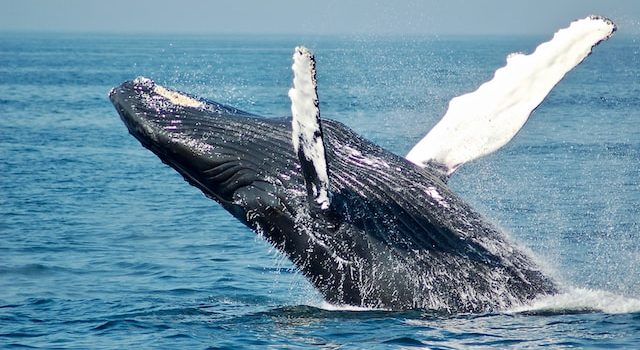
Introduction: Whales, magnificent giants of the sea, face a multitude of threats that endanger their populations worldwide. From the insidious impacts of climate change to historical hunting practices and the pervasive presence of pollution in our oceans, these threats have taken a toll on whale populations. In this article, we shed light on the major challenges faced by these marine creatures and emphasize the urgent need for conservation efforts to protect their existence.
- Climate Change and its Impacts: Climate change poses a significant threat to whale populations and their habitats. Rising sea temperatures and alterations in ocean currents can disrupt the delicate balance of marine ecosystems. Some specific impacts of climate change on whales include:
- Altered Food Availability: Climate change affects the distribution and abundance of prey species, such as krill and fish, which are crucial to the survival of many whale species. Changing ocean conditions can lead to mismatches in timing, with whales arriving at feeding grounds only to find reduced prey populations.
- Ocean Acidification: Increasing carbon dioxide levels in the atmosphere are causing ocean acidification, which affects the availability of calcium carbonate—a vital component for the formation of shells and skeletons of marine organisms. This can indirectly impact whales by reducing the abundance of their prey species.
- Historical Hunting Practices: Whales have been subjected to extensive hunting throughout history, resulting in severe declines in many populations. Although commercial whaling has been banned by the International Whaling Commission since 1986, some countries still engage in whaling under the guise of scientific research or cultural practices. This ongoing hunting poses a significant threat to the recovery and conservation of whale populations.
- Pollution and its Consequences: Pollution, in various forms, poses a grave threat to whale populations. The accumulation of toxic substances in their bodies, entanglement in marine debris, and underwater noise pollution can all have detrimental effects on whales. Some key pollutants and their impacts include:
- Plastic Pollution: Whales are susceptible to entanglement in discarded fishing gear and other marine debris. This can cause injuries, impair their ability to swim and feed, and even result in death. Additionally, the ingestion of plastic waste can lead to internal injuries and blockages.
- Chemical Contaminants: Whales are exposed to a range of chemical pollutants, including heavy metals and persistent organic pollutants, which accumulate in their tissues. These contaminants can disrupt hormone regulation, impair immune systems, and contribute to reproductive issues.
- Conservation Efforts and the Way Forward: Efforts to protect whale populations and mitigate the threats they face are crucial for their survival. Some key initiatives include:
- Conservation and Research: Ongoing research and monitoring of whale populations help inform conservation strategies and provide vital data for their protection. Conservation organizations and scientists work tirelessly to understand whale behavior, migration patterns, and population dynamics.
- International Regulations: Strengthening and enforcing international regulations against commercial whaling, supporting marine protected areas, and implementing measures to reduce pollution are essential steps in safeguarding whale populations.
- Public Awareness and Engagement: Raising public awareness about the importance of whales and their role in marine ecosystems can drive collective action. Supporting responsible whale-watching practices and choosing sustainable seafood options are simple ways individuals can contribute to whale conservation efforts.
Conclusion: Whales, emblematic of the vastness and beauty of our oceans, face multifaceted threats that imperil their survival. Climate change, historical hunting practices, and pollution pose significant challenges to whale populations worldwide. It is imperative that we prioritize conservation efforts, strengthen international regulations, and foster public engagement to protect these magnificent creatures. By addressing the threats they face and working collectively to preserve their habitats, we can secure a future where whales continue to grace our seas and inspire awe for generations to come.










